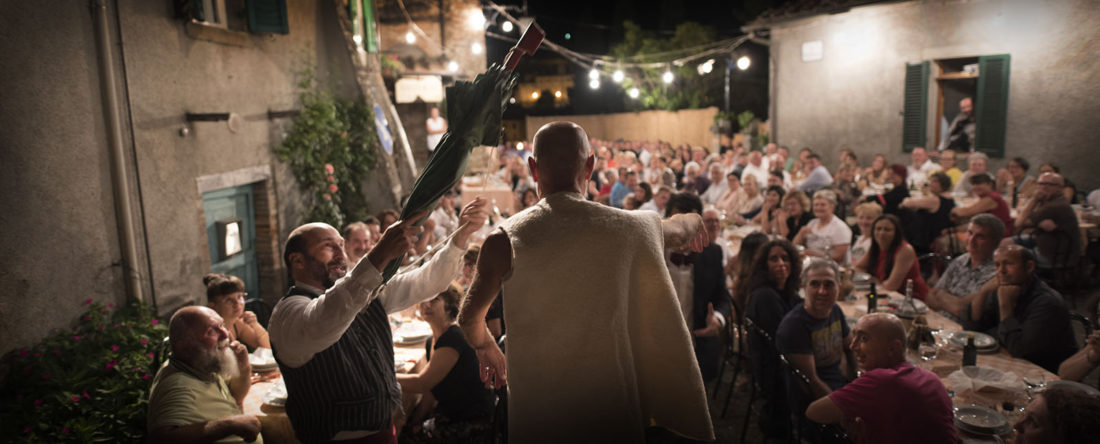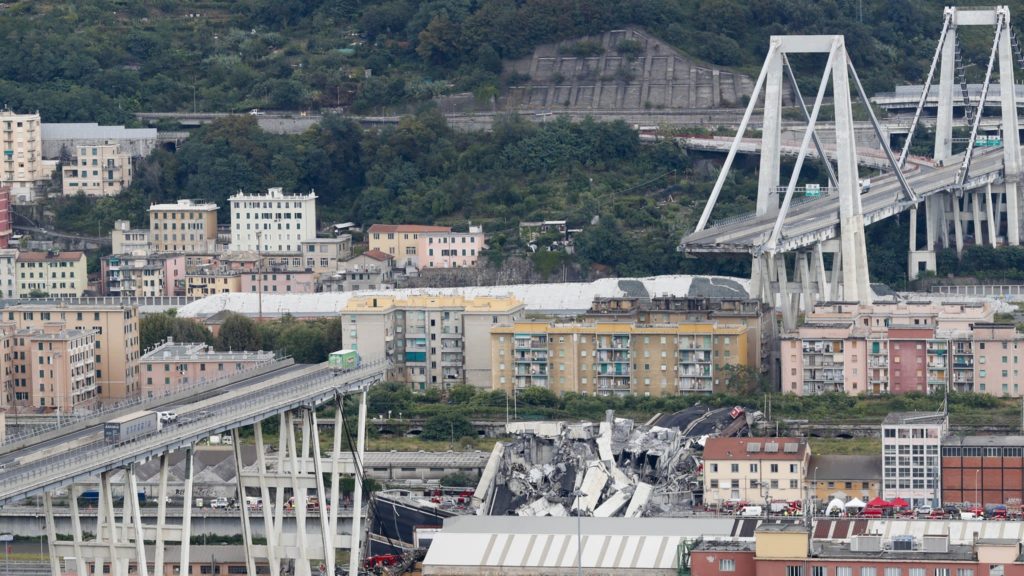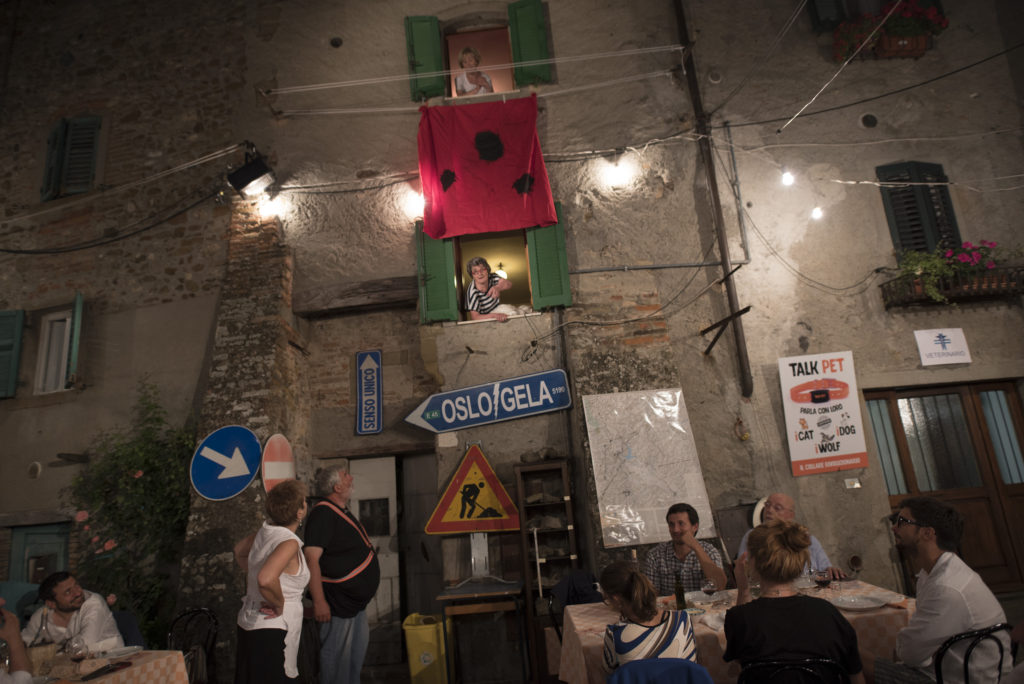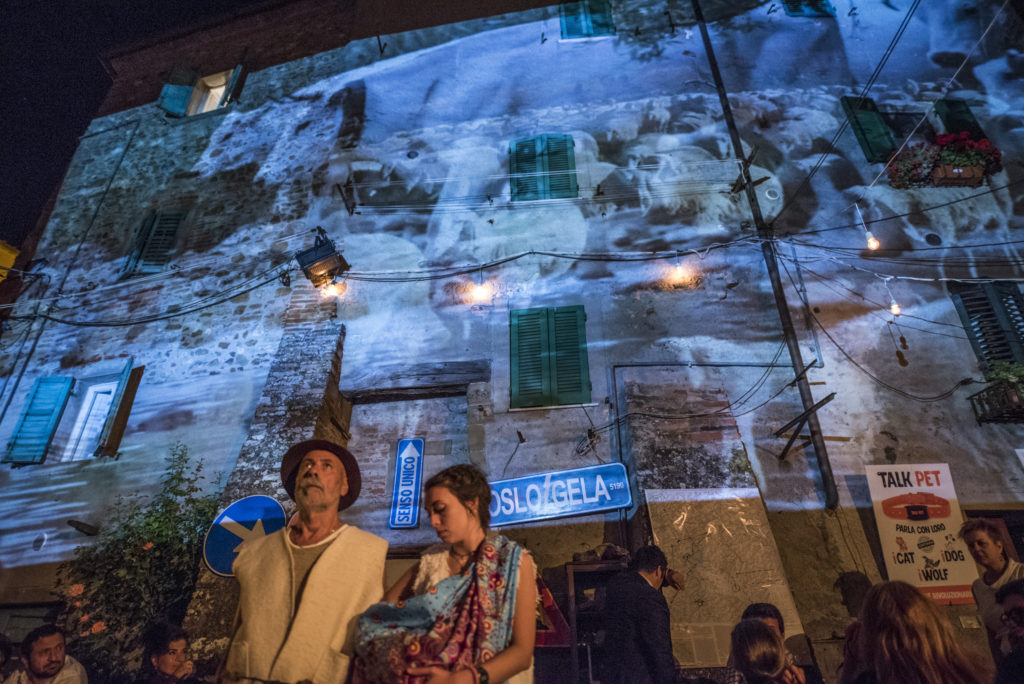
Dinner theater and the Genoa disaster
Few Italians will forget where they were the moment they heard about the collapse of the Ponte Morandi bridge in Genoa, which killed 43 and left over 600 people homeless. It hit a nerve beyond the sheer horror of the disaster. Italians are master engineers and pride (I’d venture to say even define) themselves on the beauty and engineering elegance of their creations, especially in the heyday of the Italian economic boom of the 1950s and 60s. This 1963 bridge, designed by Riccardo Morandi, was internationally famous for its beauty, but also for its bold use of structural concrete, and the collapse was a blow to national dignity.

(image from the Financial Times)
But beyond that the collapse speaks to the Italian belief that corruption is endemic and that the common people pay the price. The bridge was maintained by the Autostrade per l’Italia company (largely owned by Benetton) which is a hugely-profitable monopoly running the network of expensive to use, but fast, roads in Italy. Turns out the inspection company has ties to, and shares offices with, the company they are chartered to inspect and regulate.
Which brings us to Anghiari’s annual play, the Tovaglia a Quadri, dinner theater created, produced, and performed by a small team over a course of ten nights in August. Tovaglia a Quadri is written weeks before the performances so the topics are fresh, and it serves as an annual hard look in the mirror about the issues challenging Italy and village life. (Here’s Itch on last year’s play about how Amazon is changing local life.)

(all photos from Tovaglia a Quadri, including at top, courtesy of Giovanni Santi.)
This year, with the Genoa disaster looming in the background, they wrote about our local brush with dangerous bridges. The E45, which is the longest north-south freeway in Europe (starting in Alta, Norway and ending 5,190 kilometers away in Gela, Sicily) runs right through our valley. The section that goes to the Adriatic coast passes over some really high, long viaducts. Soon after the Genoa disaster a truffle hunter in a forest under one of these massive bridges happened to look up and notice the horrible condition of the bottom of the roadway and took some pictures. The result was this major artery of Europe being completely closed for months while the situation was assessed. (It’s now been “solved” by opening only one lane, slowing the speed limit to a crawl, and limiting heavy trucks. Every time I have to drive it I hold my breath.)
The irony for the writing team of Andrea Merendelli and Paolo Pennacchini is that where the truffle hunter took the photos was on a 2,000 year old Etruscan road, still viable, and used even today for the migration of animals from the mountains near us to Maremma on the Tuscan coast, called the transumanza. The bridge that is failing was built only 25 years ago. And there’s the added dimension that our valley shut a flow of traffic, goods, and ideas from across Europe. (Politics, anyone?) The title of this year’s play is ViaDotta, which is translated as viaduct, but also via, or way, of dotta, which is between wisdom and knowledge.
The plot follows from there, including a scheme from a local entrepreneur to showcase the transumanza to local tourists, against the will of the locals who love their pets but are not in favor of other domesticated animals being in such close proximity. In a very funny scene the entrepreneur insists that the shepherd he hires change from his usual attire of a t-shirt and sweats into one that the tourists would associate with the calling—scratchy white wool.

I was particularly interested in sharing this with you when I saw that a New York Times article about this year’s topic—the transumanza—was on the most popular articles list last week. I also saw a video about it at a London Tube station this week.
Just for the record, Anghiari got there first. I knew I’d be on the cutting edge when I moved to a tiny Tuscan village.






No Comments